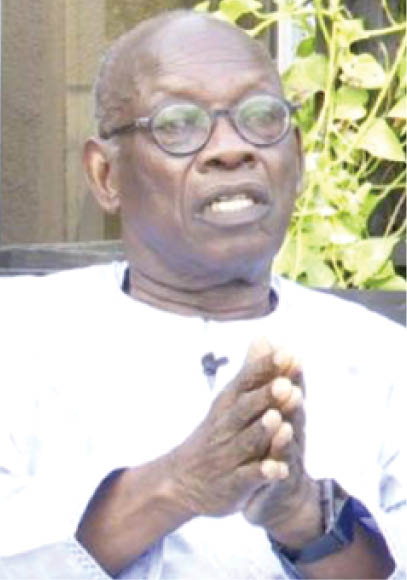[ad_1]
In this interview, a professor of Political Science and former president of the International Political Science Association (IPSA), Professor Adele Jinadu, told Weekend Trust that there is no restriction on the number of political parties under a multi-party democracy if applicants met the requirements for registration.
Less than two years to the 2027 general elections, over 90 associations have applied to the Independent National Electoral Commission (INEC) seeking registration as political parties; what do you make of this development?
SPONSOR AD
They have the right to apply, but whether they meet the requirements set down by the constitution and INEC is a different issue. Secondly, some of them might be in proxy for either of the two major parties. They will just be planted there to cause crisis. And I suspect the second point may be the reason for such high number.
The two major parties might have sponsored other parties to undermine each other, particularly in critical constituencies where they think they are powerful and can make a difference so that they can divide their votes.
What do you say to some Nigerians who believe that the existing 19 registered parties are not viable as they only exist in name, and should, therefore, be de-registered?
But INEC must comply with the constitution, the electoral law and its own regulations. There is nothing you can do about that. If they comply with the specifications in the constitution, the electoral law and the terms INEC guidelines, there is no limit to the number of parties the commission can register.
What is then your take on complaints that INEC is being overburdened and incurring more financial expenses?
Civil societies in Nigeria can ask for legal amendments to restrict the number of political parties. And if the National Assembly decides to do that, they have to amend the constitution because it really stipulates the procedure for doing it.
The Supreme Court has also pronounced that you cannot give undue requirements for a people to register as political parties, so long as they meet the basic requirements under the constitution.
So, in terms of whether there should be X number of parties in the country, the Supreme Court has said that is not a requirement. This is what is responsible for all these mushrooming of political parties. There is also a procedure for de-registering those who have been registered. If they are not happy, they have a right to go to the courts to say that INEC illegally de-registered them.
Even in the de-registering, INEC must comply with the requirements of the law.
There are also concerns on the financial implication of printing ballot papers and other logistics to cater for the large number of party candidates in elections; how do you see this?
In some countries, like Niger, for some time now, there is no limit to the number of parties. In India, there is also no limit to the number of parties that can be created. In fact, there are parties that are registered only to contest local government and state elections. And there are thresholds.
If a party wants to graduate from local government or village level, or whatever level to the state level, there are requirements that have to be met. Then from the state level to the federal level, there are requirements to be met. So, some countries don’t put a limit on number of parties so long as conditions are specified in the constitution and they are met.
Do you want to share a story with us? Do you want to advertise with us? Do you need publicity for a product, service, or event? Contact us on WhatsApp +2348183319097 Email: platformtimes@gmail.com
We are committed to impactful investigative journalism for human interest and social justice. Your donation will help us tell more stories. Kindly donate any amount HERE




